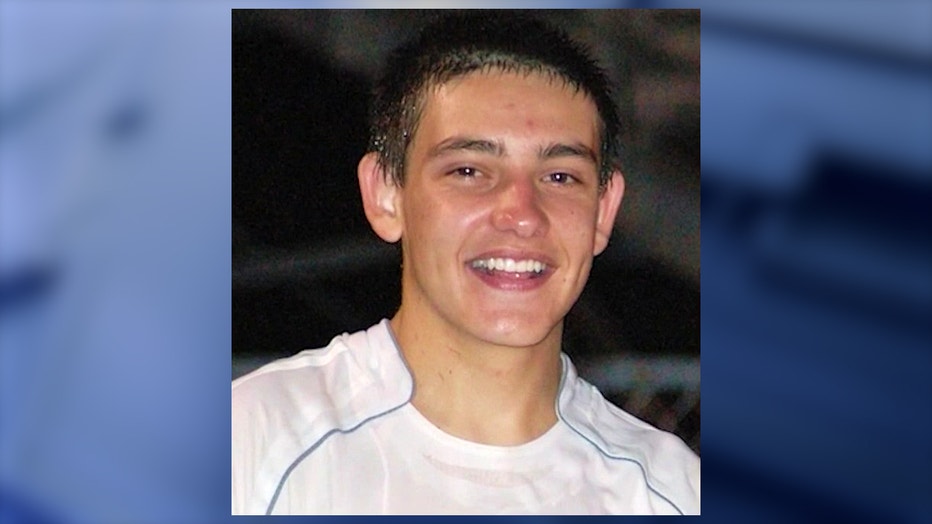Collapse of Bills safety Damar Hamlin renews conversations over sudden cardiac arrest among young athletes

Renewed conversations over sudden cardiac arrest among young athletes
Ralph Maccarone lost his son in 2007 after he collapsed at soccer practice. Maccarone said an AED machine that may have saved his life was locked inside the school. He has since spent more than a decade warning people of the dangers of sudden cardiac arrest and what's needed for immediate response.
ORLANDO, Fla. - Buffalo Bills safety Damar Hamlin remained in critical condition on Tuesday, according to the latest update from the NFL, a day after he collapsed during a game in which he is said to have suffered a cardiac arrest.
The medical scare has sparked conversation again about the dangers of sudden cardiac arrest and what's needed to respond, but it's a conversation some families in Florida have had for years.
"When I sat with my daughter, I was the most scared I've ever been," said Shawn Sima, Impact Director for the organization Who We Play For, "My thoughts are truly with that boy's mom, dad, and family."
Shawn Sima's daughter collapsed in 2016 during a workout. Thankfully, she survived.
He was also watching Monday night's Bills vs. Bengals game.
"Texted someone and said I think I just watched someone go into cardiac arrest on TV," said Sima.
Damar Hamlin made what appeared to be a routine tackle in the first quarter. Seconds later — he collapsed. Doctors say the impact of the hit may have shocked and stopped his heart.
"The heart works on a very fine electrical system. If you disrupt that electrical system at just the right moment, you can send the heart into a spin essentially," said Dr. Marc Siegel
In those moments, Hamlin wasn't playing against the other team — he was up against the clock.
According to the American Heart Association, if CPR is performed immediately — it can double or triple the chance of survival from cardiac arrest. Reports from the field show Hamlin received CPR and an AED machine was used. That machine helps shock the heart back into rhythm.
"I was watching the game, and it definitely brought back some feelings and emotions of what happened to our son, Rafe," said Ralph .
Ralph Maccarone lost his son in 2007 after he collapsed at soccer practice. Maccarone says the AED machine that may have saved Rafe's life was locked inside the school.

Ralph Maccarone lost his son, Rafe, in 2007 after he collapsed at soccer practice. Maccarone says the AED machine that may have saved Rafe's life was locked inside the school.
Maccarone says he's spent more than a decade warning people of the dangers of sudden cardiac arrest and what's needed for immediate response.
He hopes as people wish Hamlin well — they'll also do a community assessment,
"To see something like this, hopefully, sets off bells in people's minds," said Maccarone.
The organization honoring his son's legacy, Who We Play For, has pushed for required CPR training in high school, AED machines at sports events, and offered community heart screenings across the state.
Maccarone says his son's cardiac arrest was triggered by an underlying condition - hypertrophic cardiomyopathy. That's when the heart muscle becomes thickened.
He's asking state lawmakers to require student-athletes to get ECGs/EKGs to play because that condition may be detected on the test but missed on a regular physical.
"It can happen to anyone. Our son, Rafe, had passed every school sport physical," said Maccarone. "We have approximately 30% of students in the state with school board-mandated requirements. So, we're headed in the right direction."
The organization says they've already partnered with districts like Brevard, Osceola, and Orange County to run health screenings for students. The impact may have been life-saving
"9th biggest district in the U.S. Requires every athlete in high school to have EKGs/ECGs," said Sima, "Up around 50 kids who passed every physical… with confirmed heart conditions. One too many".
The organization is also pushing for teacher training on how to respond if a student experiences sudden cardiac arrest and required test drills.
Who We Play For is hosting a heart screening event on Jan. 7, from 8 a.m. to 12 p.m., at the Fitness Club Merritt Island. It costs $20 to attend but is free if your child qualifies for free or reduced lunch.

